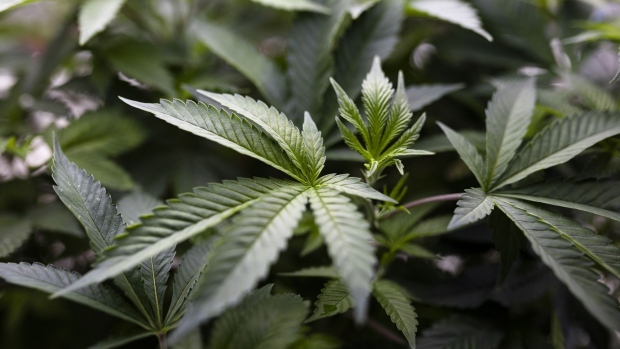Oct 29, 2020
New Zealand voters say no to legalizing recreational marijuana
, Bloomberg News

New Zealand has decided against legalizing the recreational use of cannabis, bucking a trend toward liberalization among some of its western peers.
In a referendum on whether to allow the use and sale of cannabis, 53 per cent of voters said no and 46 per cent were in favour, according to preliminary results released by the Electoral Commission Friday in Wellington. In a separate referendum, New Zealanders agreed to legalize euthanasia with 65 per cent voting yes.
The verdict on cannabis contrasts with moves away from prohibition in Canada and the U.S., where multi-billion dollar industries have sprung up to meet demand for legal weed. Canada legalized the drug at a national level in 2018. In the U.S. it’s been approved for recreational use in 11 states so far and several others, including New Jersey, are poised to follow suit. Democratic presidential candidate Joe Biden may decriminalize cannabis at a federal level if elected. One of Australia’s territories, the ACT, decriminalized pot this year.
While cannabis cultivation and use is widespread in New Zealand, warnings that legalization would make the drug more accessible to children struck a chord with many voters in debates before the referendums, which were conducted in conjunction with the Oct. 17 general election.
The proposal was to allow adults aged 20 and over to buy cannabis from licensed outlets and to grow plants at home. It would have seen the establishment of shops and cafes where cannabis products could be bought and consumed, though advertising and smoking weed in public would have been banned. Medicinal cannabis, which requires a doctor’s prescription, has already been legalized in New Zealand.
Advocates said the changes would reduce harm from cannabis by eliminating illegal supply from gangs, regulating its quality and raising awareness of the health risks through warning labels. They also said indigenous Maori are disproportionally criminalized by cannabis prohibition, as they are three times more likely to be arrested and convicted for possession of the drug than non-Maori.
Mental Health
Opponents said cannabis is a serious drug that harms mental health, particularly among adolescents, and legalizing it would send the wrong message to children.
According to the Drug Foundation, which supported legalization, 80 per cent of New Zealanders have tried the drug by the age of 20 and 12 per cent have used it in the past year. These numbers suggest Kiwis are among the biggest users in the world. Only 36 per cent of Australians try weed in their lifetimes and 11.6 per cent at least once a year, according to a government report in 2019.
While an estimated 480,000 special votes -- or 17 per cent of the total -- have yet to be counted, they would need to be weighted heavily in favour of legalizing cannabis to overturn the preliminary result. Final referendum results are due to be published on Nov. 6.
Shares in listed medicinal cannabis companies Cannasouth and Rua Bioscience fell on the news. Prime Minister Jacinda Ardern, who declined to disclose her preference ahead of the referendum, voted in favor of legalizing the drug, her office told local media.
New Zealanders took a more liberal view of assisted dying, which is now due to become legal in 12 months.
To be eligible, a person must be aged 18 years or over, suffer from a terminal illness that’s likely to end their life within six months, experience “unbearable suffering” that cannot be eased and be able to make an informed decision. They must also be a citizen or permanent resident of New Zealand.
--With assistance from Matthew Burgess.


